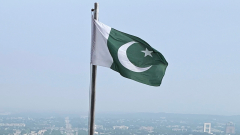Tensions between Pakistan and Afghanistan continue to mount after Pakistani warplanes carried out airstrikes inside Afghanistan, reportedly killing 46 people, including women and children.
Afghanistan’s Taliban government described the incident as a blatant violation of international principles and launched retaliatory attacks.
Pakistan’s strikes were deliberately aimed at Tehrik-e Taliban Pakistan (TTP) militants, who seek to overthrow the Pakistani government and establish an Islamic state.
A pro-Taliban media outlet claimed that Afghanistan’s strikes killed 19 Pakistani troops and three Afghan civilians.
What does this conflict mean for the two nations, and how will it impact India?
To discuss this, CNBC-TV18 spoke to Vivek Katju, former secretary of the Ministry of External Affairs (MEA), and KC Singh, former Indian Envoy to Iran.
Below are the edited excerpts:
Q: How bad could things get for Pakistan this year regarding the conflict between the Tehrik-e Taliban Pakistan (TTP) and the Pakistani army?
Katju: The relationship between the Afghan Taliban and Pakistan has not always been cozy. In fact, during the 1990s, when the Taliban was in power in Kabul, the relationship between Kabul, Rawalpindi, and Islamabad was complicated and uneasy. After the Taliban were ousted from Kabul in 2001, Pakistan began using them as an instrument to pursue its interests in Afghanistan, leading to a closer, though still uneasy, relationship. What we are witnessing now is a return to the traditional dynamic that has historically existed between Afghanistan and Pakistan. This is not something new.
There was a period after the Taliban regained power in Afghanistan





